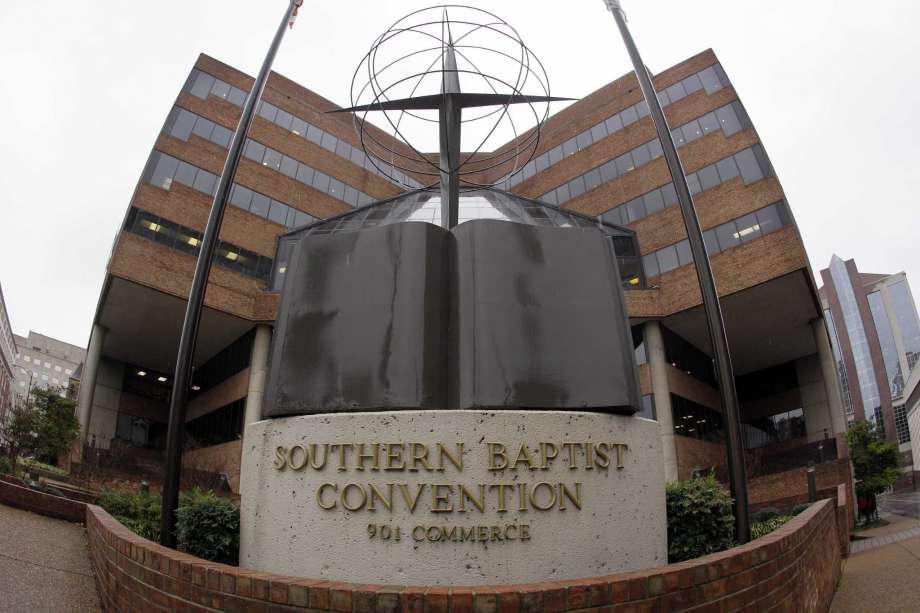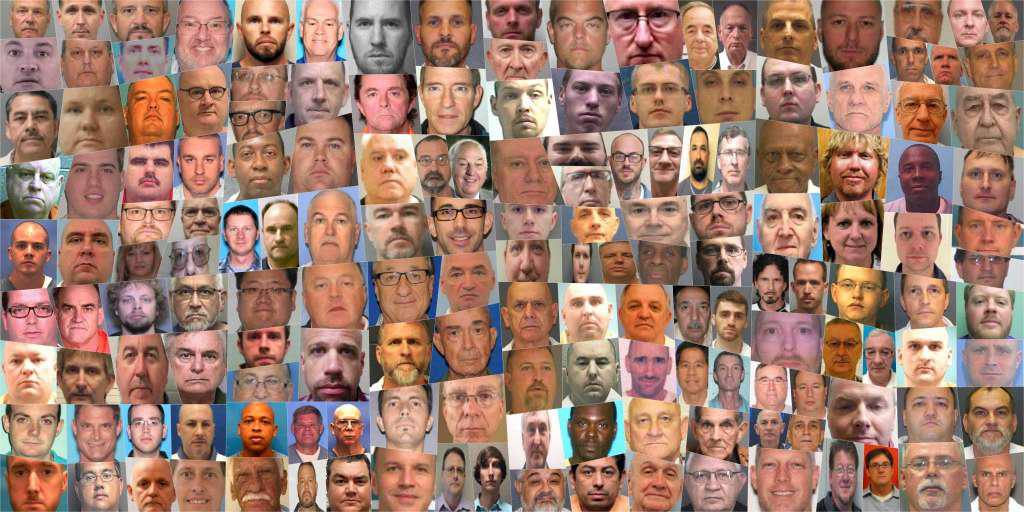|
'Awful, awful trauma' — Southern Baptist church members and leaders react to sexual abuse findings
By John Tedesco And Robert Downen
Leaders of the Southern Baptist Convention vowed last week not to tolerate sexual abuse and to enact reforms after an investigation by the Houston Chronicle and the San Antonio Express-News revealed that more than 700 people had been molested by Southern Baptist pastors, church employees and volunteers over a span of two decades. But the question remains: What will leaders of the largest coalition of Baptist churches in the United States actually do about the problem? SBC President J.D. Greear, a North Carolina pastor, said he was “broken” by what he read in the newspapers. He hasn’t offered specific solutions, but he ordered a study of sexual abuse in Southern Baptist churches last summer and is expected to unveil proposals when SBC leaders meet in Nashville, Tenn., this coming week. Other prominent SBC officials are calling for changes that include creating a registry of church employees and volunteers credibly accused of sexual misconduct and aggressively removing from the convention churches that knowingly hire predators. Russell Moore, president of the SBC’s Ethics and Religious Liberty Commission, praised the newspapers’ investigation and said people with “functioning consciences” have been “filled with rage” by the findings. The two papers “really did a service to churches by collating together this information, doing the hard work of going through and talking to people who have experienced awful, awful trauma,” said Moore, a former professor and dean at the Southern Baptist Theological Seminary in Louisville, Ky. “The idea that somehow this shouldn’t be out there in public is exactly the mentality that leads to these predators being able to carry out their actions,” he said. The three-part series, “Abuse of Faith,” was produced by a team of journalists at the Chronicle and Express-News who found 380 allegations of sexual misconduct against pastors, employees and volunteers at SBC churches in the past 20 years. More than 700 people — most of them children — reported being sexually abused. In at least 35 cases, Baptist churches hired men who had exhibited predatory behavior in the past or were registered sex offenders, the investigation found. The paper published an online database of 220 Southern Baptist church leaders and volunteers who have been convicted of sex crimes or reached plea deals. Since the series was published, local news outlets across the country have used the database to discover cases of sexual abuse in their communities. Readers reached out to the newspapers with their own stories of being sexually assaulted by someone they trusted in a Southern Baptist church. “Over the years I’ve learned to cope with this and I’ve also realized that I am not alone,” wrote one adult survivor who, as a boy, was molested by former Southern Baptist pastor Doug Myers. “Your article reaffirms this and I feel more empowered knowing that more people will now better understand what is really going on.” Myers served in Baptist churches in three different states and his conduct around boys raised suspicions — but he still managed to find work as a pastor. Myers was finally arrested and convicted of sex crimes against multiple victims in Maryland and Florida, and he is serving a 15-year prison sentence in Maryland. A core group of activists and sex-abuse survivors have spent years calling for reforms at Southern Baptist churches, and they’re skeptical of the response from SBC leaders. “It’s a temporary P.R. Band-Aid on a hemorrhaging problem,” said Amy Smith, a victims’ advocate in Dallas who blogs about allegations of sexual abuse in Southern Baptist churches. Smith and other critics point out that some of the same SBC officials who called for action last week had previously expressed support for C.J. Mahaney, former leader of a network of Christian churches called Sovereign Grace who was closely allied with SBC leaders. A class-action lawsuit filed in 2012 by church members accused Sovereign Grace of covering up allegations of sexual abuse. Mahaney denied any wrongdoing and the suit was later dismissed because of the statute of limitations. Albert Mohler, president of the Southern Baptist Theological Seminary, had voiced support for Mahaney. Mohler, in an interview last week, said he now realizes that was a mistake and expressed remorse. “C.J. was a friend,” Mohler said. “I believe in retrospect I erred in being part of a statement being supportive of C.J. and being dismissive of the charges. And I regret that action, which I think was taken without due regard to the claims made by the victims and survivors at the time.” Mohler called for the SBC to take action against churches that have mishandled allegations of sex abuse. “The first concern has to be for survivors, the first response has to be heartbreak,” Mohler said. “The moral verdict of what has been done and what has been allowed to be done has to be taken at full force. And then the obvious question, is what Southern Baptists are going to do about this?” Advocates and survivors said they’ve paid a heavy personal toll for speaking out against sexual abuse in Southern Baptist churches. Smith said her father, a former deacon at Prestonwood Baptist Church in Plano, ostracized her when she raised concerns about John Langworthy, a former music minister at Prestonwood who was fired in the summer of 1989 after behaving “inappropriately” with a teenage student. Smith had attended Prestonwood and knew Langworthy. She grew concerned years later when she learned Langworthy was working around children at a public school and a church in Mississippi. Smith alerted the school superintendent and church officials in Mississippi, raising questions that eventually led to Langworthy’s resignation. Smith obtained a video of a sermon Langworthy delivered to the congregation. In it, he admitted to “sexual indiscretions with younger males” in Mississippi and Texas. The video helped bolster a criminal case against Langworthy, and in September 2011 he was charged with eights counts of gratification of lust involving multiple boys in Mississippi from 1980 to 1984. Langworthy pleaded guilty in a deal that allowed him to avoid prison, but he is now a registered sex offender. Smith said she believes she did the right thing. But she had no idea speaking out would be so difficult. “Victims face this when they come forward in churches,” Smith said. Prestonwood, one of the largest Southern Baptist churches in Texas, is led by former SBC President Jack Graham. In a statement Friday, Prestonwood said church leaders learned of concerns about “crude and inappropriate” behavior by Langworthy in 1989, weeks after Graham became pastor. “It wasn’t apparent that this behavior involved any form of molestation,” the church said. Smith disputed the statement. She said that the church was downplaying the severity of Langworthy's behavior, and that church lawyers were called in to address the situation. Wade Burleson, a Southern Baptist pastor who has asked the SBC to establish a registry of credibly accused offenders that churches could use to vet job applicants, said he expects the newspapers’ investigation will lead to tangible change at the SBC’s annual meeting in June at Birmingham, Ala. “I think it’s a guarantee,” he said. “In other words, it won’t just be, ‘Read this study, read this book.’ It will be, ‘This is what we are doing.’” Burleson first pushed for the offender registry at the 2007 annual SBC meeting in San Antonio. A year later, an SBC committee rejected the idea, saying the convention had no authority to compel member churches to use the registry. After publication of “Abuse of Faith,” SBC leaders joined Burleson in supporting a database of offenders. Like Burleson, Mohler said the SBC should fund the effort and an independent nonprofit should oversee the data. Two other leaders of SBC seminaries said they supported the idea, as did Thom Rainer, the CEO of the SBC’s publishing arm, LifeWay Resources. “I think this is the loudest I’ve ever heard it,” Rainer said of calls for an offender database. “That is absolutely huge. We’ve definitely had people advocating it up to this point, but it has never been at the crescendo that it is now.”
|
.
Any original material on these pages is copyright © BishopAccountability.org 2004. Reproduce freely with attribution.

